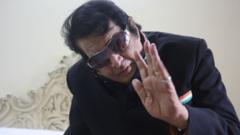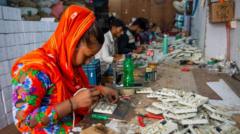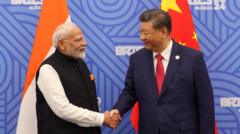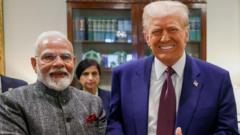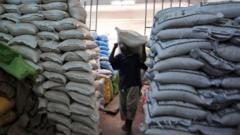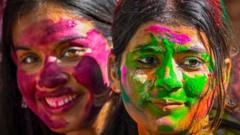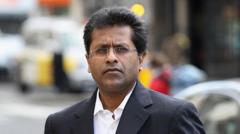Survival International highlights risks posed by social media influencers visiting uncontacted tribes, following the arrest of a US man attempting to make contact with the Sentinelese in the Indian Ocean.
Increased Threat to Uncontacted Tribes from Social Media Influencers, Experts Warn
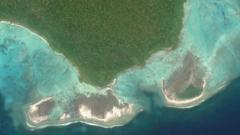
Increased Threat to Uncontacted Tribes from Social Media Influencers, Experts Warn
Concerns grow over the safety of isolated indigenous groups following US tourist's arrest on restricted island.
Social media influencers have been identified as a growing danger to uncontacted indigenous tribes, according to a recent warning from Survival International, an organization dedicated to protecting tribal rights. This assertion follows the arrest of Mykhailo Viktorovych Polyakov, a 24-year-old US tourist, who reportedly landed on North Sentinel Island in the Indian Ocean while attempting to reach out to the reclusive Sentinelese tribe, known for their staunch avoidance of outside contact.
Polyakov's actions included filming his visit and leaving offerings—such as a can of Coke and a coconut—on the island's shore, acts that have raised serious concerns regarding both his safety and the wellbeing of the tribe. Survival International condemned the incident as “deeply disturbing,” emphasizing the Tribunal's clear wishes to remain undisturbed. Their spokesperson, Jonathan Mazower, voiced worries about the increased allure of such encounters for influencers, particularly those seeking attention on social media platforms.
The situation prompted the US government to acknowledge it was "monitoring" the unfolding events. Reports indicated that Andaman and Nicobar Islands police apprehended Polyakov after an hour of trying to attract the tribe's attention with a whistle. He has since been detained for further questioning under the region's strict laws prohibiting foreign visits within a 5 km radius of the island.
Polyakov, described as a “thrill seeker,” had previously attempted visits to the region, including a failed kayak expedition last October. His recent arrest has raised alarms about the growing trend of influencers risking both their lives and the health of isolated tribes. The risks extend beyond personal safety, as uncontacted groups lack immunity to outside diseases, intensifying the potential fallout from such encounters.
Survival International highlighted that the Sentinelese, estimated to number around 200, are among the most isolated tribes globally, living on an island comparable in size to Manhattan. Their hunter-gatherer lifestyle remains largely intact, a fact noted by Mazower, who pointed out the dire need for government intervention to safeguard such communities.
While the Indian government has frameworks in place aimed at tribal welfare, it has faced criticism for ineffective implementations, particularly regarding protection from external threats such as logging and mining. The situation is reminiscent of past incidents, including the 2018 case of US missionary John Allen Chau, who was killed by the Sentinelese after attempting contact.
The thread of increasing visits by foreigners and social media enthusiasts underscores the urgency for robust protections for uncontacted tribes, as their safety and sovereignty hang in the balance amid rising global interest.


